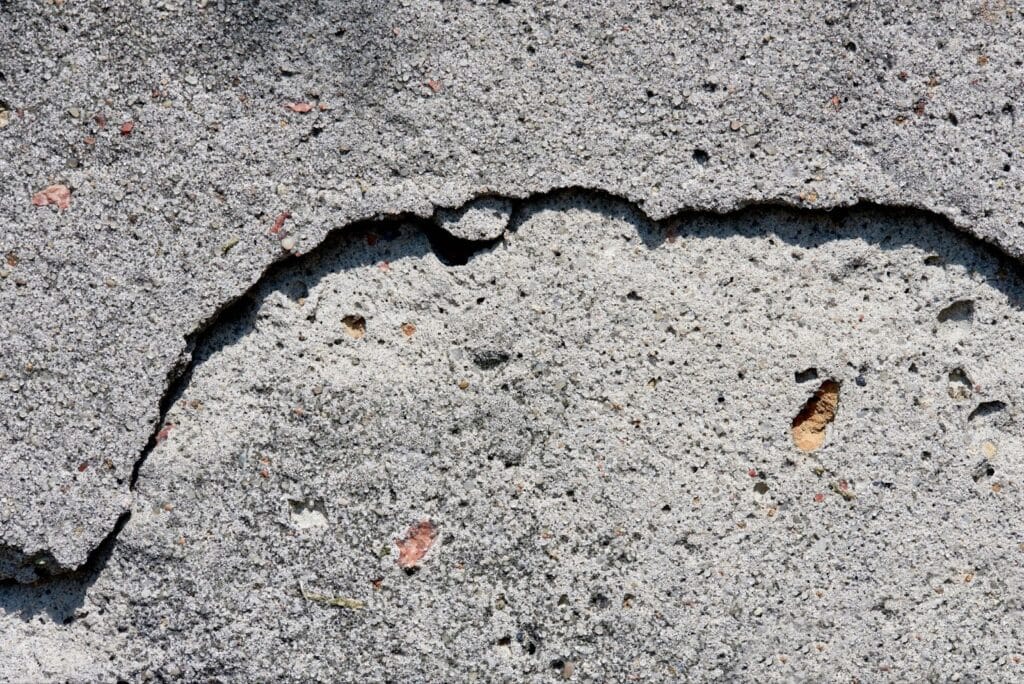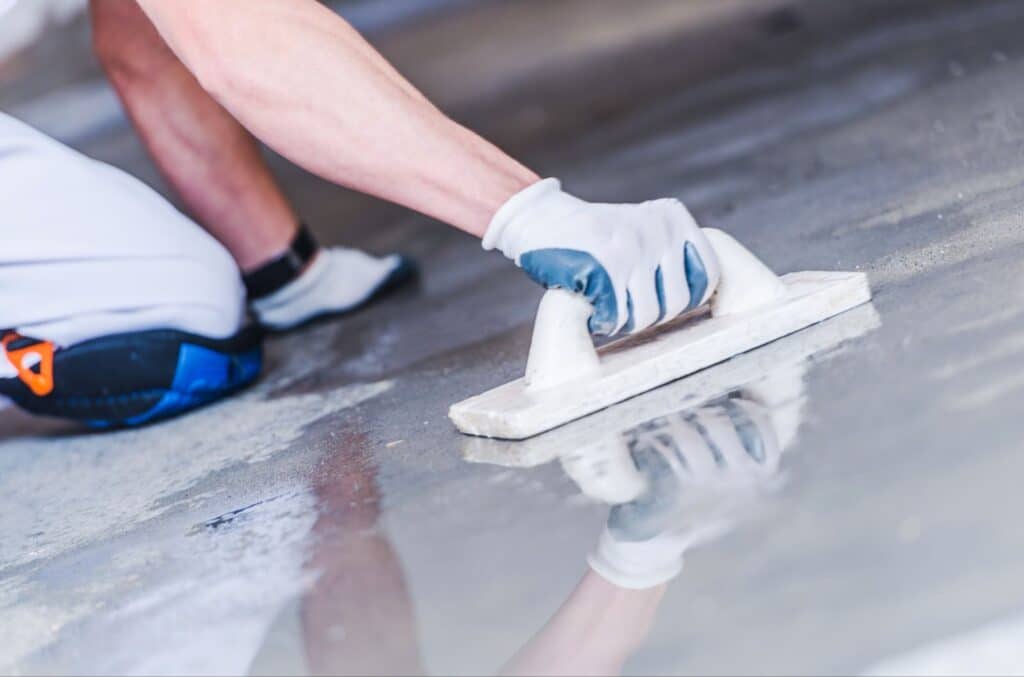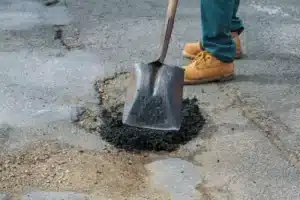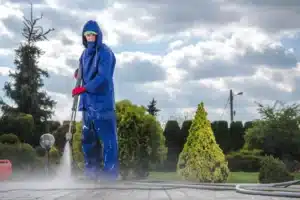Have you ever wondered if sealing your concrete could keep it from cracking? Despite its strength and durability, concrete is not immune to the effects of time and weather. If you’ve noticed cracks and lines etching across your unsealed concrete surface, you may wonder how to prevent further damage. In this article, we’ll explore the protective power of sealing products and techniques and how they can help shield your concrete from the elements and extend its lifespan. By taking preventative measures, you can preserve the aesthetic appeal of your concrete structures and ensure their longevity.
Why Do Concrete Cracks
Concrete is prone to wear and tear and will eventually develop cracks due to exposure to environmental factors such as moisture, temperature fluctuations, and physical loads. However, you can take proactive measures to delay and minimize the occurrence of these fractures, reducing the frequency of repairs and maintaining your home’s visual and structural integrity. By selecting high-quality materials, using joints and sealants correctly, and taking other appropriate measures, you can prevent or reduce the occurrence of cracks and protect the concrete from more significant damage.

Can Sealing Truly Prevent Concrete Cracks?
Sealing concrete can indeed help prevent cracking, but you should note that not all sealants are equally effective. Sealants act as waterproofing agents, repelling water and protecting the porous surface of the concrete from liquids that can expand and contract, leading to cracks. A properly sealed surface delays cracking and becomes more resistant to freeze-thaw cycles, de-icing salts, and chemical spills, which are common causes of concrete deterioration.
The effectiveness of sealants lies in their ability to penetrate the concrete surface, filling in the microscopic gaps that could allow water infiltration. This barrier can prolong the lifespan of the concrete, adding years of service to your driveway, patio, or sidewalk. However, sealants need to be applied and maintained correctly to serve as a preventative measure.
How Does Concrete Sealing Work?
Concrete sealing is more than just a surface treatment for enhancing the appearance of concrete; it involves a chemical process that fortifies the concrete’s natural defense mechanisms. Sealants containing silicate react with the free lime in concrete, producing a hard, crystalline structure that boosts density and impermeability. This chemical reaction effectively reduces the entry points for harmful substances, lowering the likelihood of cracks and other forms of damage. Moreover, many sealants possess UV-resistant properties that guard against the damaging effects of sunlight. For this reason, it is crucial to seek professional guidance when selecting the most appropriate sealer for your concrete surfaces. This ensures that you, as a homeowner, can make informed decisions about the best ways to safeguard your driveways, patios, and other concrete surfaces, ensuring their longevity for years to come.
Types of Concrete Sealers and How to Choose the Right Product for Your Pavement
Choosing the right sealer for your pavement is crucial in maintaining its durability, appearance, and longevity. Various types of sealers are available, each designed to meet different needs based on the pavement’s material, usage, and exposure to elements.
Types of Pavement Sealers
Acrylic Sealers
- Best for: Decorative surfaces, colored concrete.
- Benefits: UV protection, color enhancement, water resistance.
- Considerations: Higher cost, reapplication needed every 2-3 years.
Asphalt Emulsion Sealers
- Best for: Asphalt driveways and parking lots.
- Benefits: Environmentally friendly, easy to apply, good for maintaining asphalt’s flexibility.
- Considerations: Less durable than other types, may require more frequent applications.
Coal Tar Sealers
- Best for: High-traffic areas and commercial parking lots.
- Benefits: Durable, resistant to oil and gasoline spills, long-lasting.
- Considerations: It contains polycyclic aromatic hydrocarbons (PAHs), which may cause health and environmental concerns.
Polymer-Modified Sealers
- Best for Areas requiring extra durability, like airports and highways.
- Benefits: Enhanced flexibility, improved adhesion, and resistance to stains.
- Considerations: Higher cost, professional application recommended.
Penetrating Sealers
- Best for: Concrete pavements, blocks, and bricks.
- Benefits: Protection from within, doesn’t change the surface appearance, long-lasting.
- Considerations: Initial application can be more expensive but requires less maintenance.
Oil-Based Sealers
- Best for: Asphalt surfaces requiring deep penetration.
- Benefits: Deep penetration, rejuvenates old asphalt, water repellant.
- Considerations: Longer drying times are potential environmental concerns.
How to Choose the Right Product
Choosing the right sealer for your pavement involves considering its material, the expected traffic, environmental conditions, and your budget.
Assess Your Pavement
- Material: The type of material your pavement is made of (concrete, asphalt, decorative, etc.) largely dictates the sealer type.
- Condition: Older or more damaged pavements may benefit from rejuvenating sealers like oil-based products.
Consider Usage and Traffic
- Traffic Volume: High-traffic areas need durable sealers like coal tar or polymer-modified products.
- Exposure: Consider the level of exposure to vehicles, UV light, and chemicals.
Environmental and Health Considerations
- Choose environmentally friendly options where possible, especially in residential areas or near water bodies.
Budget and Maintenance
- While cost is a factor, consider the long-term maintenance and reapplication needs. Sometimes, a more expensive initial investment can save money over time. For the best result, you should consult with a pavement maintenance professional like Matt The Driveway Guy. We can provide recommendations based on your specific situation and ensure a proper application.
Each type of sealer has benefits and considerations, making it important to select the one that best fits your needs. Proper selection and application will protect your pavement, enhance its appearance, and extend its lifespan.
The Role of Joints: Key to a Crack-Free Surface
Joints are an essential part of concrete’s structural integrity. They are designed to allow movement and expansion without causing the entire structure to crack. The correct placement and depth of joints, caulk, and other joint fillers can prevent unsightly and damaging cracks. To work correctly, expansion joints need to be kept clean and sealed with flexible, waterproofing caulk. This substance absorbs the forces of movement and expansion, preventing them from causing cracks throughout the concrete slab.
The Critical Timing of Concrete Maintenance
Sealing concrete requires perfect timing. New concrete should be cured adequately for 28 days before applying a sealant. Existing concrete surfaces should be resealed every 2-3 years, as the sealant manufacturer recommends, to ensure ongoing protection against cracks and wear. Regular inspection and maintenance of your concrete structures will alert you to the right time to reseal. Fine cracks, discoloration, or loss of sheen from a previously glossy finish indicate that it’s time to renew your sealant and protect your concrete investment.
DIY Sealing Techniques: Tips and Tricks for a Durable Driveway
Many homeowners choose to seal concrete surfaces as a DIY project. With the right preparation, tools, and application techniques, it is possible to seal concrete surfaces effectively. It is critical to thoroughly clean the surface, repair any existing cracks or flaws, and apply the sealant according to the manufacturer’s guidelines.
However, it is essential to note that DIY approaches may have limitations, and it may be necessary to seek professional assistance in some cases. Without the proper equipment or expertise, applying sealant unevenly or missing key preparation steps is easy, leading to less-than-optimal results. Always weigh the cost and benefits of taking on a DIY project against calling in the pros.
When to Call in the Pros: Expert Sealing Services
Sometimes, you need an experienced professional like Matt The Driveway Guy to seal your concrete correctly. Based in Greenville, SC, and known for providing excellent services, we specialize in optimizing the durability and appearance of your concrete surfaces.
Choosing the right professional involves looking for someone with a strong portfolio, positive client testimonials, and the technical know-how to tackle any sealing project. Matt has been delivering these exacting service standards since 2011, building a reputation for reliability and excellence in every job undertaken.

Cost vs. Reward: The Economics of Sealing Your Concrete
The initial cost of sealing your concrete is an investment in your home’s future health and beauty. While it may seem like an additional expense, the savings in terms of longevity and reduced repair costs are substantial. Sealed concrete not only endures the test of time better than untreated surfaces but also maintains a more attractive appearance, potentially enhancing the overall value of your property.
The Aesthetic Advantages of Sealed Concrete
Aside from preventing concrete cracks, sealing can significantly boost your property’s curb appeal. An appropriately sealed concrete surface has a clean, finished look that can complement the design and landscaping of your home. Additionally, sealants can enhance safety with non-slip additives that make walking surfaces safer underfoot in all weather conditions. Over time, sealant technology has evolved to include a range of finishes, from natural matte to high-gloss, allowing homeowners to customize the look of their driveways, walkways, and patios. The added visual appeal is one more reason to consider sealing an essential part of your concrete care routine.
Frequently Asked Questions
Does sealing concrete keep it from cracking?
Sealing concrete can indeed help prevent cracking, but not all sealants are equally effective. Properly applied sealants act as a waterproofing agent, repelling water and protecting the concrete from harmful elements, extending its lifespan and reducing the risk of cracks.
How Does Concrete Sealing Work?
Concrete sealing is a chemical process that enhances the concrete’s natural defenses. Sealants containing silicate react with the concrete, creating a hard, impermeable structure that reduces the chances of cracks and damage. It’s crucial to seek professional guidance to select the appropriate sealer for your specific concrete surfaces.
Final Thoughts
Adequately sealed concrete is fortified against the formation of cracks, ensuring protection and an enhancement in appearance. By adopting a proactive stance on sealing, you act as the ultimate guardian of your concrete, investing in its longevity and maintaining its aesthetic appeal for years to come. If you are ready to take the next step in concrete care, contact us to get a quick quote.






